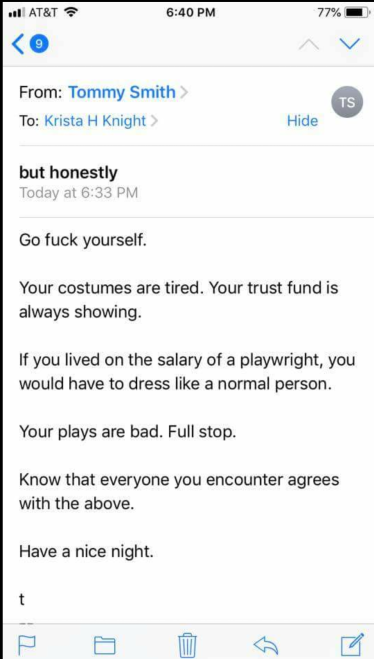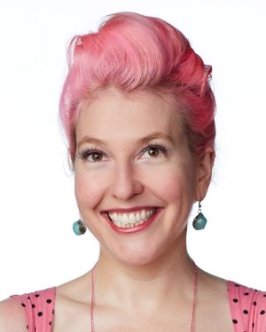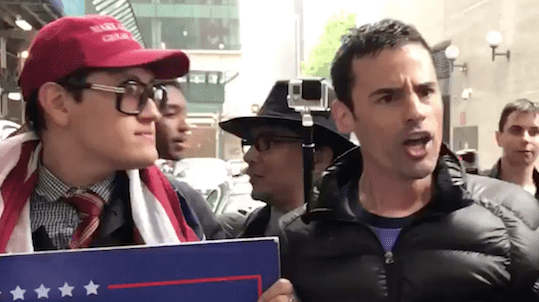
“We don’t see color!” (Source: Honestly? I found this doing a google image search for “wypipo.” Public domain, according to google.)
“I don’t see color! WE ALL BLEED RED.”
People of color, you have almost certainly had white people say this to you, or some version of it, numerous times. It’s a lie. But you already knew that.
White people, of course we “see color.” We see that people are Black, or Asian, or Latinx. So what is our intent when we say “I don’t see color” to a person of color? What we’re trying to say is “We don’t care about your race! We’re judging you as a person.”

(Source: stonecroft.org)
I know many white people have good intentions when we say this. Our intention is to advertise ourselves as “not racist.” But intent is meaningless. Impact is what’s important. Intent is unknowable, untouchable, and, let’s face facts, easily reverse engineered. Our words and actions have an impact on the people around us, regardless of our intentions.
So what are we really saying when we say “I don’t see color” or “I don’t see race”?
“I don’t see race” means “I am uncomfortable talking about racism.” When you claim that you don’t even see, for example, your friend’s Blackness, you’re refusing to recognize, understand, and accept that her experience of the world is fundamentally different than yours. “We all bleed red” would have more meaning if some of us weren’t bleeding far more than others. Until you can accept that as fact, you can’t be a good ally, let alone a good friend. Racism exists whether you “see” it or not, and it impacts the day-to-day experiences of people of color. It’s understandable that white people are uncomfortable talking about race, but remember that that discomfort is what people of color experience every day in the US. “I don’t see race” signals to people of color that they can’t be their whole, authentic selves with you.
“I don’t see race” means “Your non-white race is a liability, so I am generously ignoring it.” A racial and/or ethnic identity is a beautiful, meaningful part of a person’s identity. When we tell the people of color around us that we “don’t see race,” we’re saying that we are deliberately ignoring an enormous part of their identity. No one would take that as a compliment. We only claim to “not see” things that are liabilities.
“This whole time, I had spinach stuck in my tooth!”
“I didn’t even see it!”
“I dropped a line in that scene.”
“Did you? I didn’t even notice.”
American culture routinely frames European cultures as intrinsically superior to other cultures, a fact that is unexamined by many people who claim they “don’t see race.” They will proudly wear a kilt or celebrate their Viking ancestry, but see it as a praiseworthy act of generosity to “not see” the ethnic origins of non-white people, having never paused to consider how meaningful it is to be, for example, Black. Almost all Black Americans are descended from enslaved Africans, ripped from their cultures of origin, grouped with people from diverse African ethnicities, and forced to speak a new language and worship a new god while being treated like animals. The families they created here were often ripped apart; children sold away from mothers; husbands sold away from wives. No social or familial bond was safe from destruction. And yet out of that horror, they managed to create a unique American subculture that has been one of the most powerful influences on global culture in the history of humanity. Think about the enormity of that achievement for a moment. Telling a Black woman you do not see her race is like telling a queen you do not see her crown. All racial and ethnic identities have rich cultures and histories. “I don’t see race” is saying “I see an important and beautiful part of your identity as a liability.”

Hiding from discussions of race does not mean you’re “not racist.”
“I don’t see race” means “I’m afraid of being called ‘a racist.'” You cannot hide from discussions of race to avoid racism– quite the opposite. Seeing race does not make you a racist. Stating that you refuse to acknowledge race brings you much closer to that line because you’re rejecting the reality of racism in our culture and its impact on people of color. We live in a racist culture. The culture relentlessly bombards us with racist messaging. Fighting that requires constant vigilance. It requires questioning everything you think about race, everything you read, everything you hear. It requires factchecking statements about race and believing the nonpartisan factchecker rather than the racism. In short, it requires that we see race. It requires active examination of race in both self-reflection and education. If you feel so at sea in these discussions that you avoid them for fear of screwing up and looking like a racist, educate yourself! Read about racism. Read writers of color, and not just when they write about racism. And remember: not every discussion requires your participation. Sometimes you can just listen and learn when people of color are discussing racism around you.
Never try to “play devil’s advocate.” Racism is not a game. It’s an extraordinarily disrespectful thing to say in discussions of race, in no small part because it’s one way people who are afraid of being called “racist” air their racist views. If you find yourself wanting to say, “I don’t see color, but let me just play devil’s advocate here,” stop and spend some time honestly reflecting on what you were about to say.

(Source: KC Green, gunshowcomic.com)
“I don’t see race” means “The problem will go away if we ignore it.” Talking about racism does not cause racism. Despite the efforts of white people like Rep. Mike Kelly (R-PA), you do not “make America great” by ignoring race-based discrimination. “We need to stop talking about discrimination and start talking about the nation,” Kelly said, revealing his belief that racism is best swept under the rug, and that people of color are not included when we say “our nation.” Kelly went on to shout at Rep. Maxine Waters (D-CA), “We’re coming together as a people despite what you say,” meaning America is “coming together” to shut out people of color. The bill for which he was arguing, SJ Res. 57, passed both the House and the Senate, and it is once again legal for auto lenders to discriminate on the basis of race. Fighting racism requires active involvement, and that begins by recognizing the people of color around you in all aspects of their humanity.
“I don’t see race” means “Please praise me as a ‘good white person.'” As a white person trying hard to interrogate my whiteness, be a good ally, and work to create equity in our culture, this is the one I most deeply understand. It’s a struggle to walk around in a body every day that symbolizes hatred and danger to others, and the desire to be recognized as “not that”– as a good person– is strong.
The irony, of course, is that our culture frames people of color, especially Black and Latinx men as violent and dangerous. Despite the generations of oppression and violence white people have inflicted on people of color, our culture gives white people the benefit of the doubt, sees us as individuals, and expects our goodness while assuming people of color, especially Black and Latinx men, are weapons waiting to be used against us. When popular right wing site Breitbart was run by former Trump advisor Steve Bannon, it featured an entire section labeled “Black Crime,” which was, after public scrutiny, demoted to a tag, then finally deleted. (The stories weren’t deleted– just the tag.) President Trump himself has called non-white nations “shithole countries,” and a man who made a recent failed bid for governor of Georgia toured the state in a “deportation bus” emblazoned with “Danger! Murderers, rapists, kidnappers, child molesters, and other criminals on board,” “Follow me to Mexico,” and “Fill this bus with illegals.” Immigrants, both documented and undocumented, commit fewer crimes than people born here, but racism is driving the inaccurate narrative that immigrants are dangerous. That kind of narrative, designed specifically to facilitate the oppression of people of color, cannot simply be ignored.
See race. If you want recognition as a good person, you must act like a good person and actively fight racism. Even then, being anti-racism is like being anti-murder or anti-theft. Don’t expect praise for that. Michelle Obama won’t come to your house with a trophy for being against racism any more than she would because you stopped stealing your co-workers’ lunches from the break room fridge.

Not coming to your house. (Photo: Charles Dharapak/AP)
Integrity is doing the right thing, even when no one is watching. Being a good person is its own reward. Fight racism because it’s the right thing to do.






